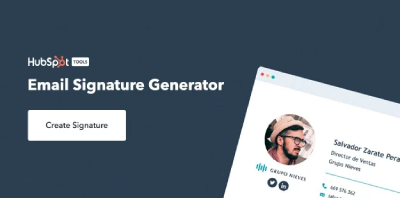Politr Way to Say Sorry to Ask You Again
When you've been in sales a while, it's easy to develop bad habits. You pick them up from other reps or take a shortcut during an especially busy week and, all of the sudden, you've added some skills to your repertoire that aren't helping you meet your quota. If you're not regularly examining your behavior and results, these habits can cause mistakes that end in deals falling apart, annoyed prospects, or missed numbers. And I'm not just talking about waiting too long to update a contact's information in your CRM. Seemingly innocuous phrases like, "Sorry to bother you," sneak into our regular sales emails and phone calls and poison our relationships without us even realizing it. Here's how to stop it. Ideally, sales reps would never have to write a follow up email because they would avoid the number-one follow-up mistake: Failing to set a next step before ending the call. All it takes is one cringeworthy phrase to kill a sales follow-up email. One of my least favorite moves is asking for a prospect to respond "ASAP." But apologizing for contacting your prospect is nothing short of poisonous to deals, and should be cut from the vocabulary of every sales rep. It usually looks like this: It's me again Hey Mike, Sorry to bother you again, but I wanted to make sure you received my last few emails with a great offer for our firewood package this winter. I don't want you to miss out on this opportunity. I know you're busy, but I just wanted to touch base one last time. All the best, Annoying Allen So, why should you avoid saying "Sorry to bother you again?" If you find yourself using this phrase in an email -- stop writing. Instead, regroup and focus on providing value to the prospect and grabbing their attention instead of "bothering" them again. There are a multitude of ways to provide value in a sales follow-up email. Here are a few I suggest. A customer review provides value because modern-day buyers trust their fellow buyers to give honest feedback about a product they've used. Think they might not trust a written review coming directly from you? Connect them with current and past buyers who can provide honest feedback on why working with you is great as well as some of the drawbacks. For example, you might open an email with, "Instead of sending you a pitch, I'll let a previous customer do the heavy lifting with their unvarnished (really) testimonial." Case studies allow prospects to discover how a business in a similar position to theirs solved its problems. Send your latest and most relevant study with a note saying, " This case study made me think of your business. I know your time is valuable, and I think this is worth the few minutes it will take to read. " You've acknowledged their time is a priority for you, without discounting your own schedule and what you're offering. A blog post is a way to build credibility with prospects and provide them new information about the product and company as they start to make a decision. If you're trying to grab a prospect's attention, try sending one with an especially snappy title. You might even work with a marketer to craft a post just for them. After all, who isn't going to click the link to a post titled, "9 Reasons Julie Needs ABC Staffing Solutions Today." Surfacing a mutual connection allows the prospect to ask their acquaintance about the sales rep and gather more information. It also signifies that if a friend works with this sales rep, the prospect might also enjoy working with the same sales rep. And it gives you something in common to bond over. For example, "I see we have a mutual connection: Sansa Stark. Her family bought several dire wolves from me a few years ago." You've given your conversation and relationship something to build upon -- and that can be a huge help when conducting outreach. A small strategy tip can help sales reps build credibility and showcase the value of their insight to buyers. When a salesperson's name appears in a prospect's inbox, the reaction shouldn't be, "No, not this rep again!" or "Who?" but "I wonder what they're sending me -- I better check it out." Send them a new industry benchmark report or a mention a recent move their company made, and offer unique insight into how your product/service could help. For example, "I thought you might be interested in the latest benchmark report from [insert trusted industry source]. Their findings on the 25% increase in mobile app usage might be especially interesting to you and relevant to your work." Want to really get their attention? Don't talk business at all. Instead, send them a casual email saying, "I watched a documentary on Colorado ski country this weekend and thought of you immediately. Have you hit the slopes yet this year?" While your prospect might not be ready to discuss business -- most people like talking about their hobbies and out-of-office interests. Once you have them engaged again, use your best judgement to steer them back to the topic at hand: your offer. If you've reached out multiple times over the course of several weeks or months and your prospect still hasn't responded, do yourself a favor and walk away. You should be spending time on deals that actually have a chance of closing, and pleading with an unmotivated prospect to respond to your emails isn't doing either of you any good. Simply say, "Tony, I've tried to reach you unsuccessfully a few times now. Usually when this happens, it means my offer isn't a priority for you right now. Is that safe for me to assume here? If so, you won't hear from me again." If your prospect is still interested, this should grab their attention. If not, it gives them an easy way out. You can always leave the door open for a call or email six months down the line to see if things have changed. If your prospect recently published a new blog post or the company unveiled a shiny, new product, let them know you're paying attention. Chances are, they put a lot of time and effort into their recent project, and would love for someone to notice. Send a simple note saying, "I saw your recent feature in Forbes and wanted to tell you what a great write-up it was. I especially liked your observation that AI will begin to take a stronger hold in sales." It's short, specific, and complimentary. Great emails build rapport and credibility. By looking for this deadly phrase before sending your emails, you can improve your odds of a response, and eventually, a relationship. Want other ways to improve your sales emails? Check out these killer opening email lines or explore alternatives to saying, "Hope you're doing well" -- guaranteed to put your prospect to sleep before they've even read sentence two. 
Why You Should Never Say, "I Am Sorry for Bothering You"

Alternatives to Saying, "Sorry for Bugging You"
1. Send a customer review
2. Include a case study
3. Link to a blog post
4. Reference a mutual connection
5. Provide a suggestion
6. Drop shop-talk altogether
7. Offer to walk away
8. Compliment them


Originally published Jun 10, 2019 2:17:00 PM, updated June 10 2021
prenticeleene1977.blogspot.com
Source: https://blog.hubspot.com/sales/the-phrase-that-poisons-sales-follow-up-emails
0 Response to "Politr Way to Say Sorry to Ask You Again"
Post a Comment